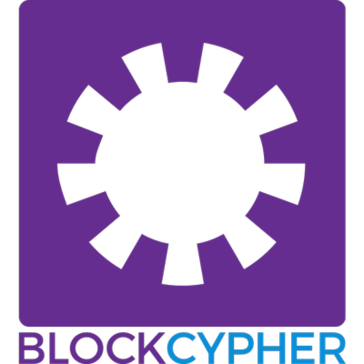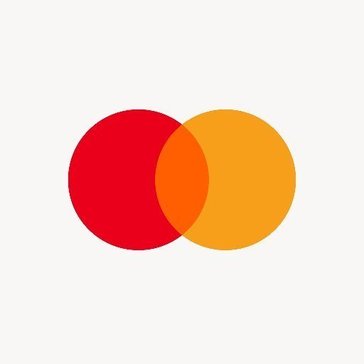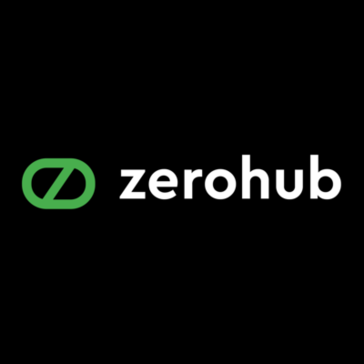Description

BlockCypher

Mastercard Blockchain
Comprehensive Overview: BlockCypher vs Mastercard Blockchain
BlockCypher
a) Primary Functions and Target Markets:
- Primary Functions: BlockCypher is a cloud-based, blockchain-agnostic platform that provides infrastructure and services for blockchain applications. It offers a suite of APIs to simplify the integration with blockchain networks, focusing on transaction management, blockchain data querying, and secure transaction signing.
- Target Markets: BlockCypher caters primarily to developers and businesses looking to integrate blockchain technology into their applications. Its users are often in industries like finance, insurance, IoT, and supply chain management, looking for robust, scalable blockchain solutions without the complexity of managing blockchain infrastructure directly.
b) Market Share and User Base:
- Market Share: BlockCypher, being one of the earlier entrants in the blockchain-as-a-service (BaaS) space, has a substantial presence, especially among developers requiring blockchain integration tools. However, it isn't as widely recognized as some newer, larger players like AWS or IBM that offer BaaS themselves.
- User Base: It has a dedicated but niche user base focused primarily on businesses requiring blockchain integration services. These often include fintech startups, mid-sized companies, and some enterprise-level businesses that favor customizable APIs and blockchain solutions.
c) Key Differentiating Factors:
- Blockchain-Agnostic: BlockCypher's primary differentiating factor is its blockchain-agnostic nature, making it flexible and suitable for various blockchain networks such as Bitcoin, Ethereum, Litecoin, and others.
- Ease of Integration: Its range of APIs allows developers to integrate blockchain features into applications more seamlessly, appealing specifically to businesses that prefer not to delve into the underlying complexities of blockchain technology directly.
- Focus on Simplification: BlockCypher emphasizes on simplifying the blockchain integration process with tools not necessarily available from larger BaaS providers.
Mastercard Blockchain
a) Primary Functions and Target Markets:
- Primary Functions: Mastercard Blockchain is designed to offer secure, transparent, and efficient transaction capabilities focused on enhancing payment processing and enabling new commerce applications. It provides a framework for proof-of-concept services, allowing businesses to develop new and innovative payment solutions.
- Target Markets: Target markets include financial institutions, merchants, and enterprises interested in blockchain-based payment solutions. It also targets sectors needing blockchain for secure financial transactions and transparent supply chain solutions.
b) Market Share and User Base:
- Market Share: Mastercard Blockchain has a potentially significant footprint given Mastercard's global presence and influence in the financial services sector. However, competition is fierce from other major financial services firms and blockchain initiatives.
- User Base: Its user base primarily comprises financial institutions and large-scale enterprises that are existing Mastercard partners or those attracted to Mastercard's widespread acceptance network and experience in handling secure transactions.
c) Key Differentiating Factors:
- Industry Expertise: Being a major player in the financial industry, Mastercard brings deep industry knowledge, regulatory experience, and a robust network to its blockchain offerings.
- Integration with Legacy Systems: Mastercard Blockchain is designed to integrate smoothly with existing financial and payment systems, giving an advantage to traditional financial institutions transitioning to blockchain.
- Focus on Payments and Commerce: Unlike more general-purpose blockchains, Mastercard Blockchain is heavily focused on applications in payments and commerce, leveraging the company's strengths.
Comparison and Insights
- Target Audience and Use Cases: BlockCypher appeals to developers and businesses needing customizable blockchain solutions across various industries, whereas Mastercard Blockchain targets financial institutions and large enterprises focusing specifically on payment and commerce applications.
- Technology Approach: BlockCypher offers a broader blockchain-agnostic platform, while Mastercard’s solution focuses on payments and integrates deeply with existing financial infrastructure.
- Market Influence: Mastercard leverages its established position in the financial industry, while BlockCypher leverages technical flexibility and developer-friendly tools. Each has distinct strengths, with Mastercard having broader market influence and cybersecurity experience suited for high-stake financial transactions.
- Strategic Partnerships: Partnerships with financial players and developers are crucial for Mastercard and BlockCypher, respectively, leveraging established networks for rapid adoption and integration.
Overall, the choice between BlockCypher and Mastercard Blockchain will largely depend on the specific requirements of the business, such as the industry focus, the need for blockchain interoperability, and integration with existing systems.
Contact Info

Year founded :
2013
+1 415-868-5675
Not Available
United States
http://www.linkedin.com/company/blockcypher

Year founded :
Not Available
Not Available
Not Available
Not Available
Not Available
Feature Similarity Breakdown: BlockCypher, Mastercard Blockchain
BlockCypher and Mastercard Blockchain both operate in the broader realm of blockchain technology but serve slightly different purposes, aligning their offerings with their business objectives and target audiences. Here is a feature similarity breakdown between them:
a) Core Features in Common
-
Blockchain-as-a-Service (BaaS):
- Both offer blockchain infrastructure and support to facilitate businesses and developers in adopting blockchain technology with ease.
-
APIs:
- They provide APIs for developers to build blockchain-powered applications, though the specific capabilities and blockchain networks supported might differ.
-
Transaction Support:
- Both platforms support transactions, albeit BlockCypher is focused on supporting multiple public blockchains, whereas Mastercard might focus more on secure transaction validation in financial settings.
-
Scalability and Performance:
- Both services are designed to handle a large number of transactions and ensure performance scalability, crucial for business applications needing to interact with blockchain technology.
-
Security:
- Security is a top priority, with features ensuring data integrity and secure transactions across the platforms.
b) User Interface Comparison
-
BlockCypher:
- Known for its developer-oriented interface, BlockCypher offers a suite of tools and dashboards geared towards developers. The UI is straightforward, focusing on functionality and ease of integration with other services.
-
Mastercard Blockchain:
- The interface is likely tailored more towards business users in the financial sector, offering intuitive GUIs for managing transactions and integrations tailored to enterprise needs. Ease of use and integration with existing Mastercard services would be emphasized.
c) Unique Features Setting Them Apart
-
BlockCypher:
- Multi-Blockchain Support: BlockCypher supports several blockchains like Bitcoin, Ethereum, Litecoin, etc., which makes it versatile for developers interested in multi-chain solutions.
- Microtransaction Capability: It provides specialized support for microtransactions, catering to applications that require high-frequency, low-value transactions.
-
Mastercard Blockchain:
- Enterprise Integration: Being part of a major financial services giant, Mastercard’s blockchain services are deeply integrated with other Mastercard offerings, providing businesses with tailored solutions for payments and fraud prevention.
- Provenance and Traceability Solutions: Mastercard has showcased blockchain solutions focused on supply chain provenance, allowing businesses to trace the origin and journey of goods, which is a feature less emphasized by BlockCypher.
In conclusion, while both platforms aim to simplify blockchain adoption, BlockCypher provides a wider range of blockchain network options and developer tools, whereas Mastercard focuses on seamless integration with its financial products and solutions for enterprises. Each platform's unique features align with the company’s strengths and market strategy, providing distinct value propositions to their respective user bases.
Features

Blockchain API Services
Tools for Developers
Security Features
Cost Management
User-Friendly Tools

Efficiency and Speed
Smart Contracts
Data Privacy
Interoperability
Security and Trust
Best Fit Use Cases: BlockCypher, Mastercard Blockchain
BlockCypher and Mastercard Blockchain are two distinct blockchain platforms, each with its own strengths and optimal use cases. Here's a detailed breakdown:
a) BlockCypher
Best Fit Use Cases:
-
Cryptocurrency Payment Processing:
- Ideal for businesses that want to integrate cryptocurrency payments into their operations, such as e-commerce platforms, remittance services, or any online business looking to accept Bitcoin, Ethereum, or other cryptocurrencies.
-
Blockchain Application Development:
- Suitable for startups and tech companies focusing on developing decentralized applications (dApps) or blockchain-based solutions. BlockCypher provides APIs and toolsets that make it easier to interact with multiple blockchains.
-
Fintech Startups:
- Perfect for fintech companies needing seamless and efficient access to blockchain networks for creating innovative financial solutions.
-
Data Verification and Provenance:
- Organizations that require immutable data records for verification purposes, such as supply chain tracking, can benefit from BlockCypher's services, particularly due to its reliability and ease of integrating blockchain verification.
b) Mastercard Blockchain
Preferred Scenarios:
-
Secure and Scalable Payment Solutions:
- Businesses in need of secure, fast, and scalable payment processing. Mastercard Blockchain leverages its strong financial network and expertise to provide robust solutions.
-
Enterprise-Level Financial Services:
- Large corporations or financial institutions looking to enhance their services with blockchain technology, such as cross-border transactions, supply chain financing, and other B2B applications.
-
Loyalty and Rewards Programs:
- Retailers and service providers seeking to innovate their loyalty programs through blockchain, ensuring security and integration across multiple platforms.
-
Identity Verification Services:
- Companies in sectors like finance, insurance, or healthcare that need advanced solutions for identity verification and fraud prevention can utilize the secure nature of Mastercard Blockchain.
d) Industry Verticals and Company Sizes
-
BlockCypher: It is more versatile for smaller businesses, startups, or companies in the early stages of blockchain adoption. Its API-driven approach allows small to medium enterprises (SMEs) to experiment and deploy blockchain capabilities without significant infrastructure changes or investments. It is especially advantageous for industries in fintech, supply chain, and tech development.
-
Mastercard Blockchain: Tailored more towards larger enterprises and organizations with significant financial and logistical operations. Mastercard's platform benefits from its established network and expertise in global finance, making it a strong option for large-scale financial services, retail, healthcare, and enterprises requiring robust, enterprise-grade blockchain solutions.
In summary, BlockCypher is best suited for smaller, agile companies or projects looking to integrate cryptocurrency or build blockchain applications with flexibility, while Mastercard Blockchain is optimal for large enterprises needing secure, scalable solutions in finance and related sectors.
Pricing

Pricing Not Available

Pricing Not Available
Metrics History
Metrics History
Comparing teamSize across companies
Conclusion & Final Verdict: BlockCypher vs Mastercard Blockchain
To provide a comprehensive conclusion and final verdict on BlockCypher and Mastercard Blockchain, it's essential to evaluate each platform in terms of value, pros and cons, and recommendations for prospective users.
Conclusion & Final Verdict:
a) Best Overall Value:
Determining the best overall value depends on the specific needs of the user. BlockCypher and Mastercard Blockchain cater to different segments of users, and making a choice involves understanding those nuances.
-
BlockCypher is an attractive option for developers and businesses looking for blockchain infrastructure solutions, offering multi-blockchain support, powerful APIs, and extensive tools for blockchain deployment.
-
Mastercard Blockchain is more suited for enterprises seeking blockchain solutions integrated with existing financial systems, offering security, transaction speed, and scalability, particularly in sectors like supply chain, payments, and digital identity.
Given these perspectives, BlockCypher offers better value for technology-driven startups and developers seeking flexibility and multi-blockchain applications. In contrast, Mastercard Blockchain may offer superior value for established enterprises prioritizing security and integration with financial and supply chain systems.
b) Pros and Cons:
-
BlockCypher:
Pros:
- Supports multiple blockchain protocols (e.g., Bitcoin, Ethereum).
- Offers comprehensive and easy-to-use APIs.
- Real-time data and analytics capabilities.
- Strong focus on developer tools and services.
Cons:
- May require more initial development work for integration.
- Less suited for non-tech enterprises looking for turn-key solutions.
- Limited support for enterprise-scale financial services.
-
Mastercard Blockchain:
Pros:
- High level of security and trust, backed by Mastercard's reputation.
- Designed for seamless integration with existing financial systems.
- Supports a wide range of enterprise applications, particularly in payments and supply chains.
- Strong scalability features suitable for global operations.
Cons:
- Less flexible for developers looking for custom blockchain solutions.
- Primarily focused on large enterprises and might be cost-prohibitive for smaller businesses.
- Limited support for developers outside its enterprise ecosystem.
c) Recommendations:
For users deciding between BlockCypher and Mastercard Blockchain, consider the following:
-
Industry Needs: If your primary focus is financial services, supply chains, or any other industry requiring extensive enterprise integration, Mastercard Blockchain may provide a more tailored solution. For versatility across different blockchain systems and applications, BlockCypher is advantageous.
-
Size and Scale: Small to medium-sized businesses or start-ups with a strong focus on blockchain technology and innovative use cases may find BlockCypher's offerings more aligned with their needs due to its developer-friendly environment. Large enterprises should consider Mastercard Blockchain for its robust security, scalability, and synergy with existing systems.
-
Technical Resources: Evaluate the technical expertise available within your team. BlockCypher is ideal if you have a team capable of developing custom blockchain solutions. In contrast, Mastercard's platform is better suited for less technical enterprises requiring integrated solutions.
-
Budget Considerations: For startups and smaller businesses, BlockCypher may offer a more cost-effective solution, whereas Mastercard might involve significant initial investment better suited for enterprises with substantial budgets.
In conclusion, the choice between BlockCypher and Mastercard Blockchain ultimately boils down to specific business requirements, industry focus, and available resources. Thoroughly assessing these aspects will lead to a more informed decision tailored to meeting your strategic objectives.
Add to compare
Add similar companies



